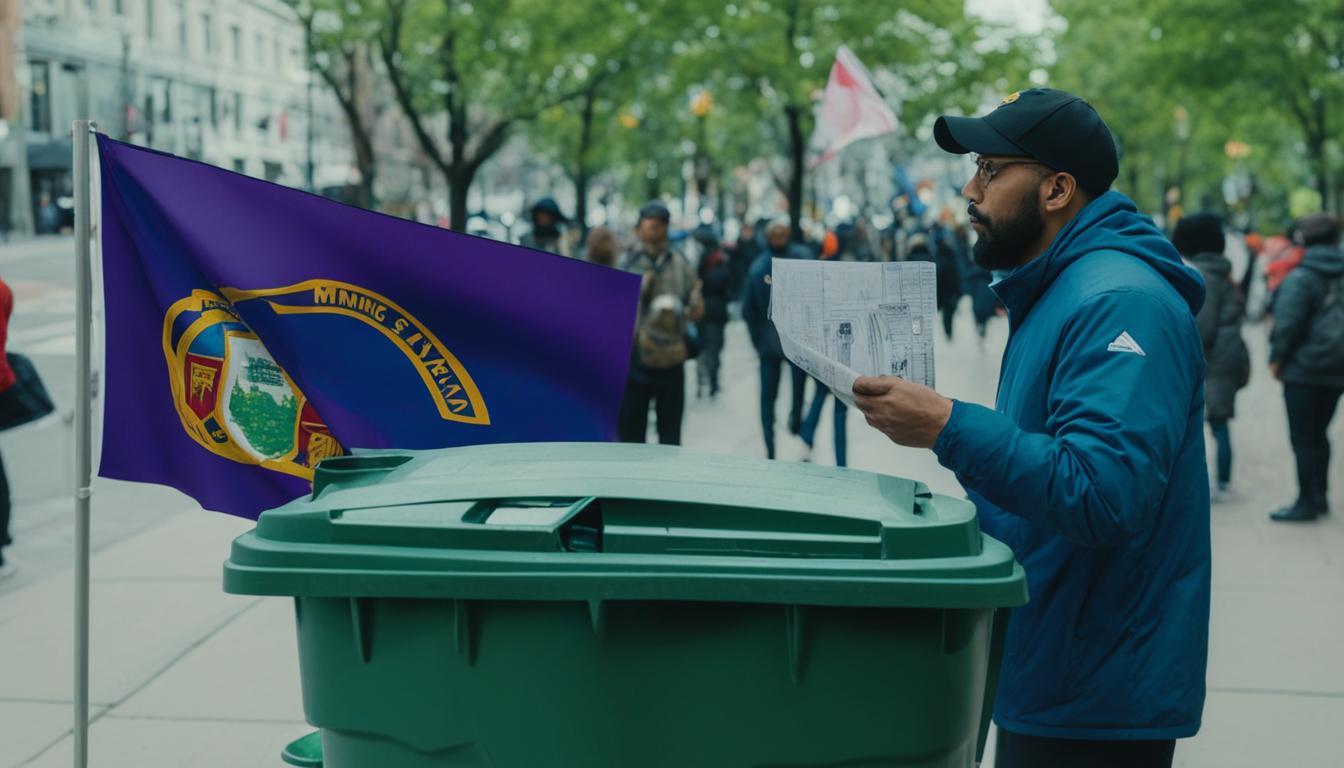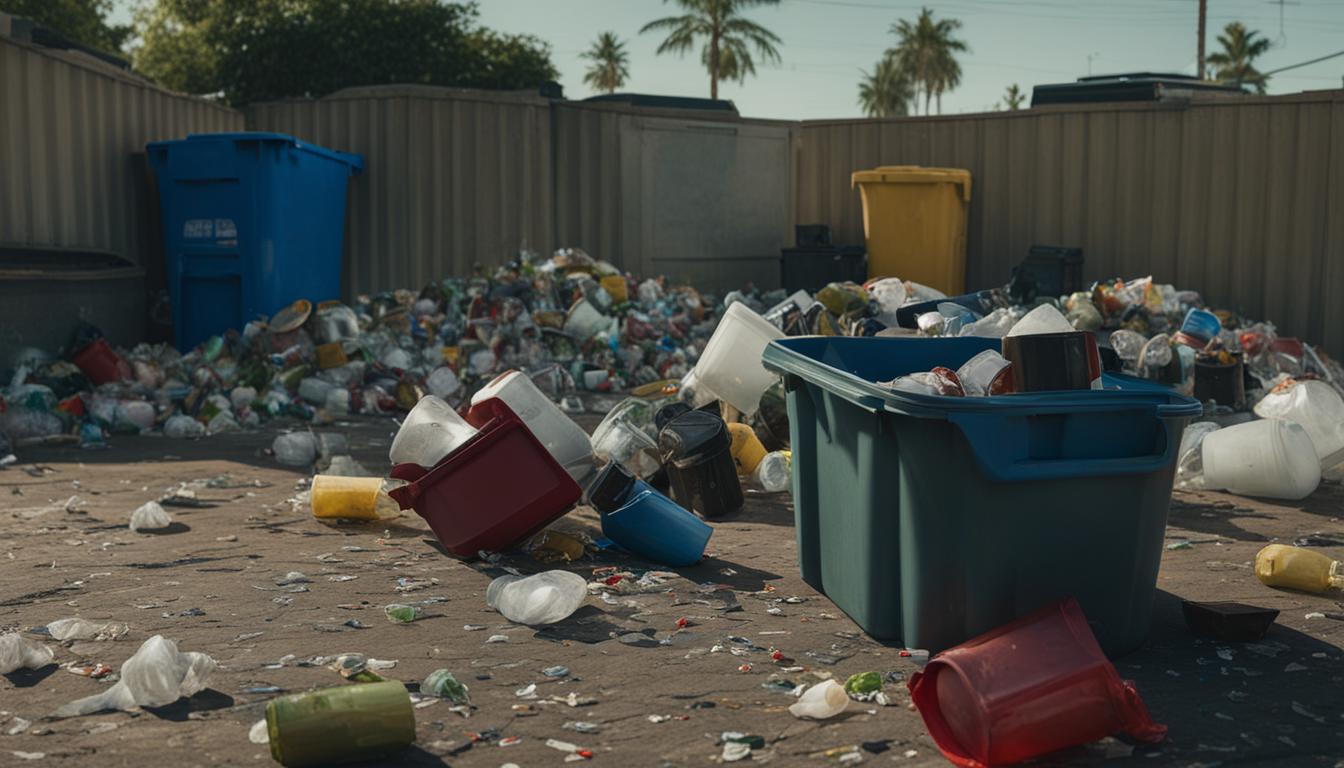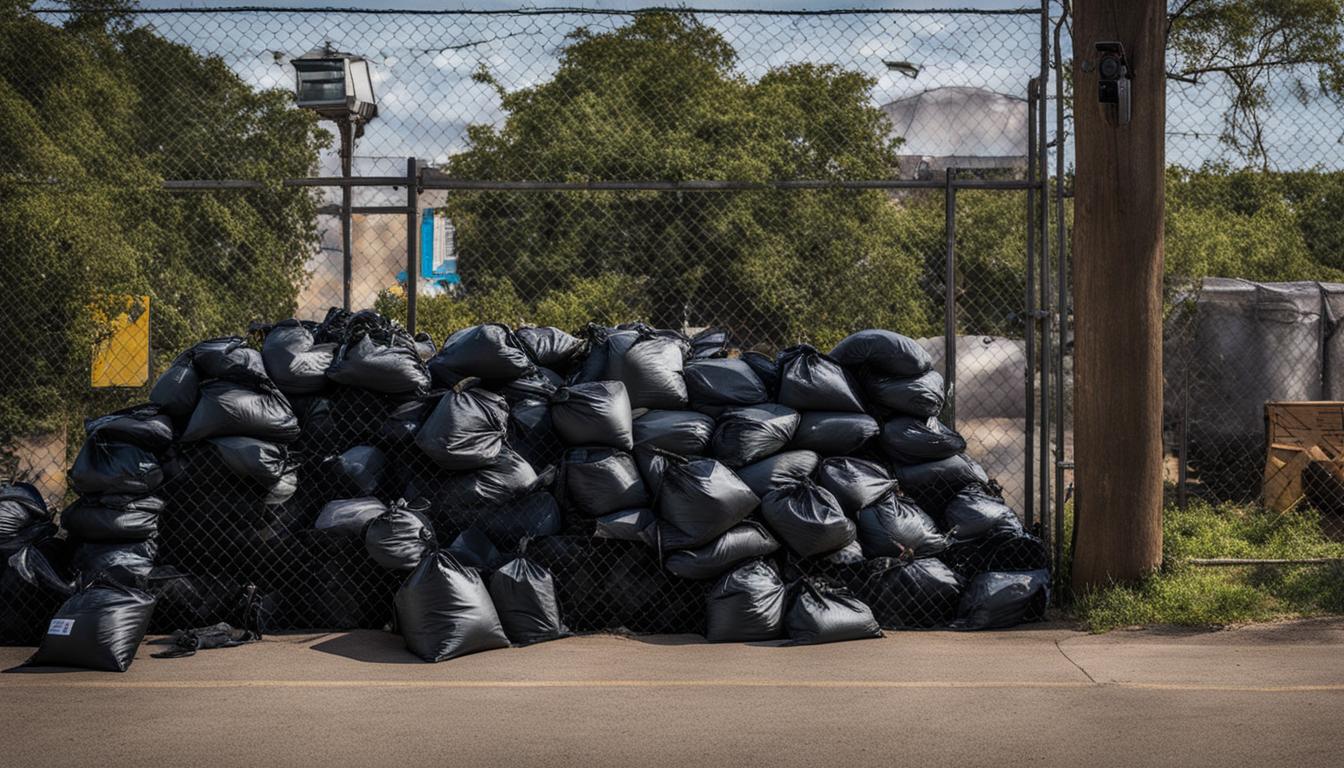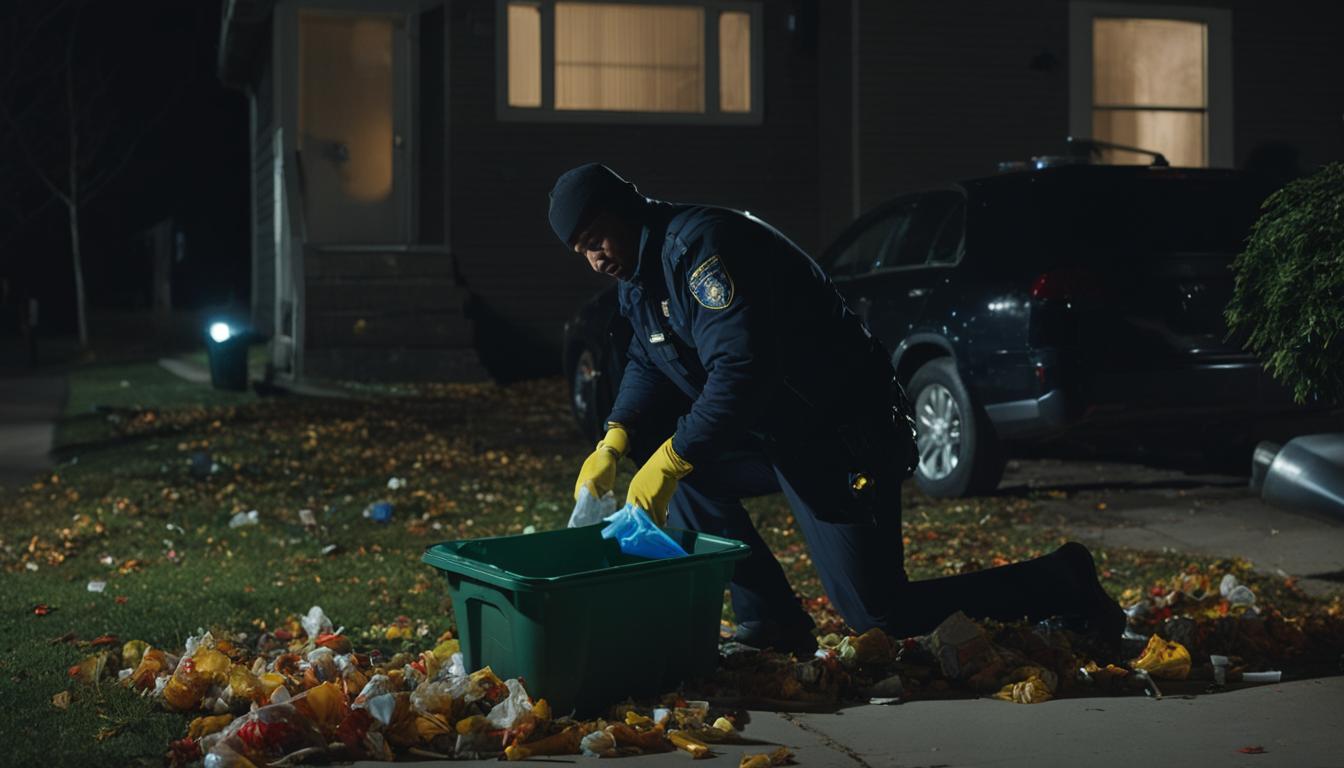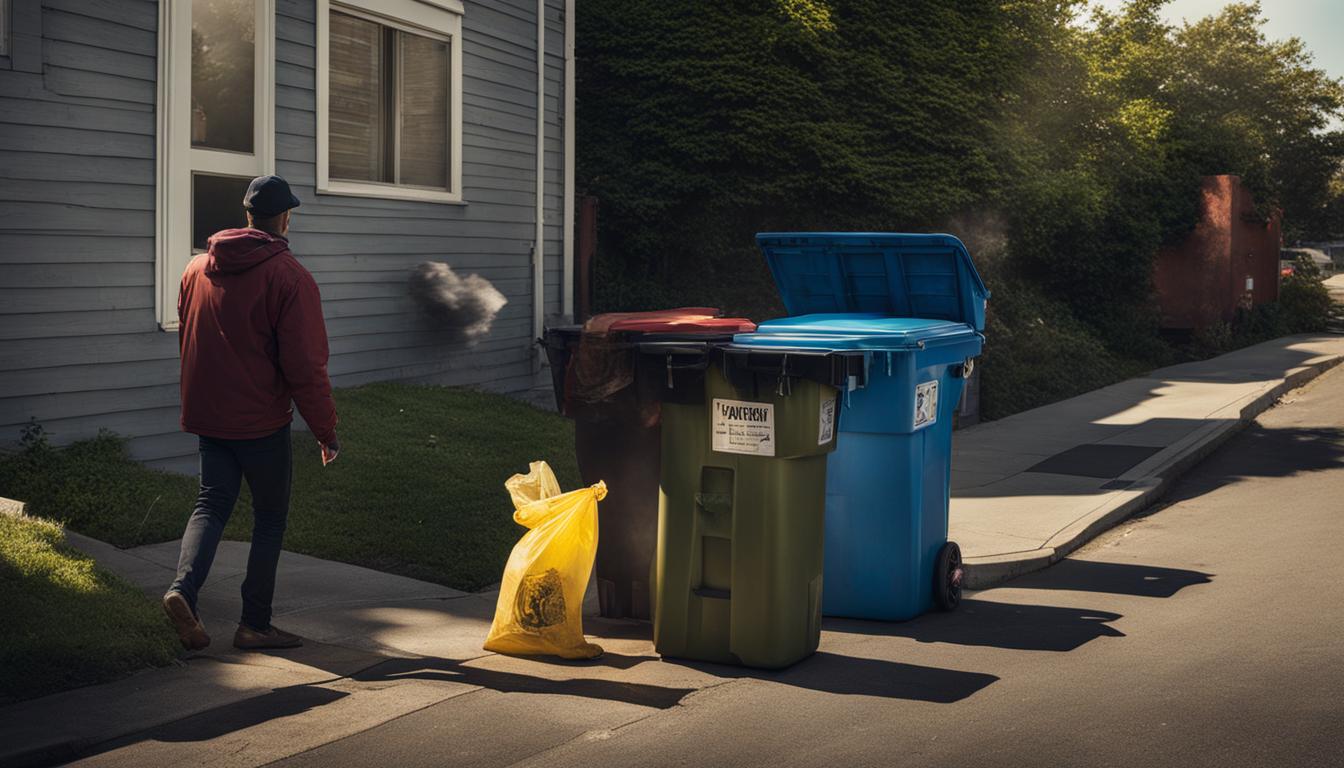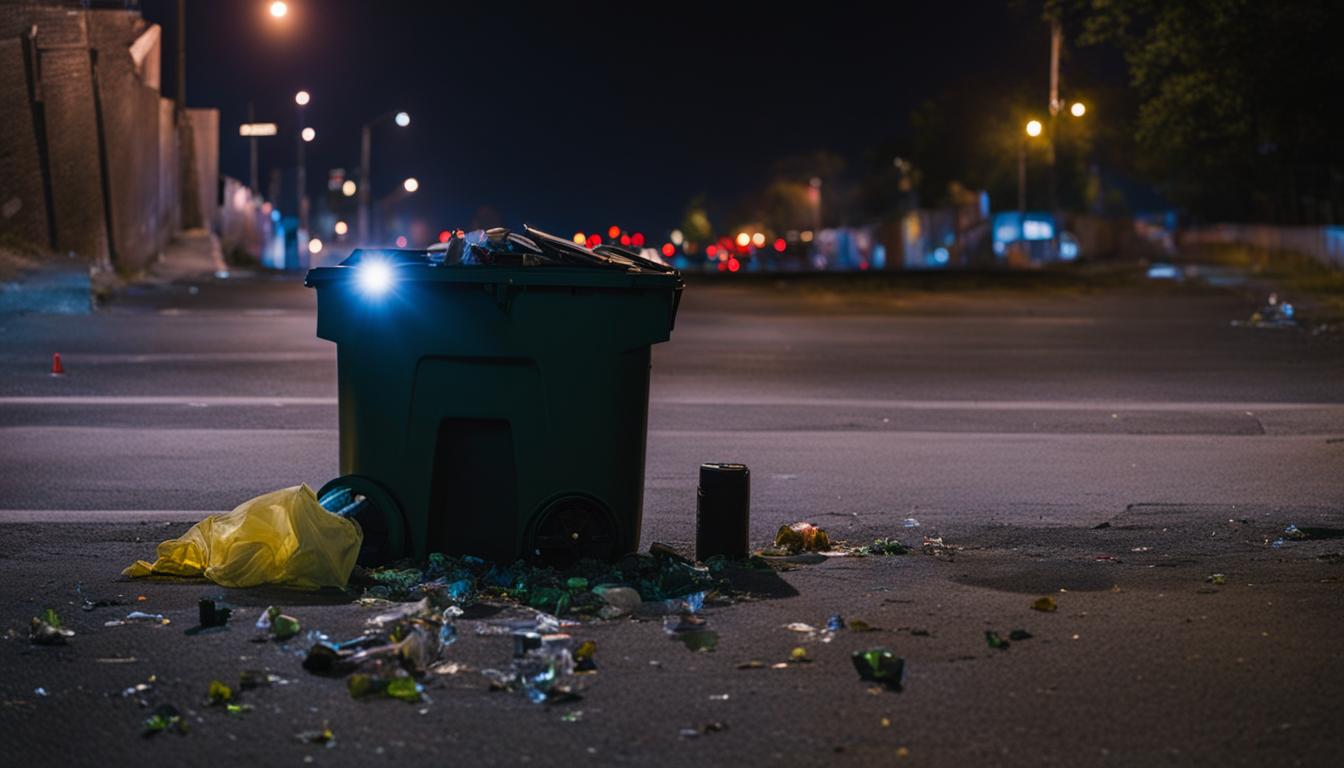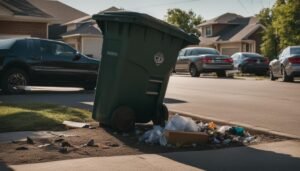Disclosure: This Post Contains Affiliate Links; We earn a commission on purchases.
When it comes to trash privacy laws in Minnesota, many people have questions about whether it is illegal for someone to go through their trash. While privacy rights are an important consideration, the Minnesota Supreme Court has ruled that individuals have no expectation of privacy when they put their trash at the curb.
The court has made it clear that the Minnesota Constitution does not provide greater protection for trash privacy than the U.S. Constitution. Justice Wilhelmina Wright emphasized that when garbage is placed at the curb for collection, it is not reasonable to expect it to remain private.
However, not everyone agrees with this ruling. Justice David Lillehaug dissented, arguing that the Minnesota Constitution affords greater privacy rights. He highlighted that household waste contains personal information that can reveal intimate details about individuals, making it of great interest to law enforcement and other parties.
Key Takeaways:
- The Minnesota Supreme Court has ruled that individuals have no expectation of privacy when they put their trash at the curb.
- The Minnesota Constitution does not provide greater protection for trash privacy than the U.S. Constitution.
- Some argue that household waste contains personal information and should be afforded greater privacy rights.
- It is important to be aware of trash disposal regulations and waste management guidelines to avoid legal consequences.
- Properly disposing of trash is essential for maintaining cleanliness and protecting the environment.
The Implications of Dumpster Diving and Trash Snooping
Dumpster diving, the practice of going through someone else’s trash to find valuable items, is not illegal in Minnesota. However, it is crucial to consider the privacy implications of such actions. Although there are no specific laws prohibiting dumpster diving, it is essential to understand waste management and garbage disposal regulations to ensure compliance and respect for others’ privacy.
While dumpster diving may seem like an innocent pursuit, it can potentially infringe on individuals’ privacy rights. People dispose of various items in their trash, including personal documents, receipts, or other sensitive information. Going through someone’s trash without their permission can raise concerns about the unauthorized access and potential misuse of personal data.
Although dumpster diving itself may not be illegal, it is important to note that individuals must still adhere to waste management laws. Properly disposing of trash and following waste management guidelines is essential to maintain cleanliness, protect the environment, and avoid penalties.
Understanding Garbage Disposal Laws and Waste Management Regulations
Trash disposal laws and waste management regulations play a vital role in maintaining a clean and sustainable environment. While the specific laws may vary by jurisdiction, several general principles guide waste management practices:
- Segregation and Separation: Properly separate different types of waste, such as recyclables, organic materials, and hazardous substances, to facilitate effective waste disposal and recycling processes.
- Responsibility for Waste: Understand that individuals are responsible for the proper disposal of their waste. This includes ensuring that all waste is appropriately contained, labeled, and disposed of in designated receptacles.
- Illegal Dumping: Engaging in illegal dumping, which involves disposing of waste at unauthorized locations or without the necessary permits, is a punishable offense. Illegal dumping can have severe environmental consequences and may lead to fines or even criminal charges.
- Disposal Methods: Familiarize yourself with the approved methods of waste disposal in your area. This may include utilizing municipal waste collection services, recycling centers, or authorized landfills.
“Properly disposing of trash is not only a legal obligation but also a responsibility we have as individuals to protect our environment and ensure the well-being of our communities.”
– Waste Management Specialist
To gain a better understanding of waste management regulations and garbage disposal laws in your specific area, it is advisable to consult local authorities or waste management agencies. They can provide detailed information on proper waste disposal practices and the consequences of non-compliance.
In conclusion, while dumpster diving itself is not illegal in Minnesota, it is crucial to be mindful of the privacy concerns and waste management regulations associated with this practice. Respecting others’ privacy and following waste disposal laws are essential for maintaining a clean and sustainable environment.
Understanding the Rights and Protections for Trash Privacy
The Minnesota Constitution, Article 1, Section 10, guarantees the right of people to be secure in their persons, houses, papers, and effects against unreasonable searches and seizures. However, the Minnesota Supreme Court has interpreted this provision to mean that individuals do not have a reasonable expectation of privacy when it comes to their trash.
This means that law enforcement and other parties can search through someone’s trash without a warrant. The court’s rationale is that once trash is placed at the curb for collection, it is considered abandoned property and no longer protected by privacy rights.
Once trash is placed at the curb for collection, it is considered abandoned property and no longer protected by privacy rights.
While this interpretation may seem concerning for individuals who value their privacy, it is important to understand that the court’s decision is based on the notion that abandoned property lacks an expectation of privacy. The act of discarding trash indicates that individuals no longer have a desire to maintain confidentiality over its contents.
Despite this legal stance on trash privacy, it is crucial to remain conscious of the sensitive information that can be found in discarded materials. Personal and financial documents, medical records, and other confidential data can still be at risk if they are not properly disposed of.
To protect yourself, it is advisable to take measures such as shredding documents that contain sensitive information before disposing of them in the trash. This can help minimize the chances of identity theft or other privacy breaches.
Protect Your Privacy
While trash privacy laws may seem limited, individuals still have rights and responsibilities when it comes to safeguarding their personal information. Taking proactive steps to protect your privacy can help reduce the risks associated with unauthorized access to your discarded materials.
- Shred personal documents: Use a shredder to destroy documents containing personal information before discarding them.
- Secure your trash: Consider using lids or locked containers to prevent unauthorized access to your trash.
- Be mindful of what you throw away: Avoid discarding items that may contain sensitive information, such as credit card statements, bank statements, medical records, and personal correspondence.
By following these practices, you can take control of your privacy and reduce the likelihood of your discarded materials falling into the wrong hands.
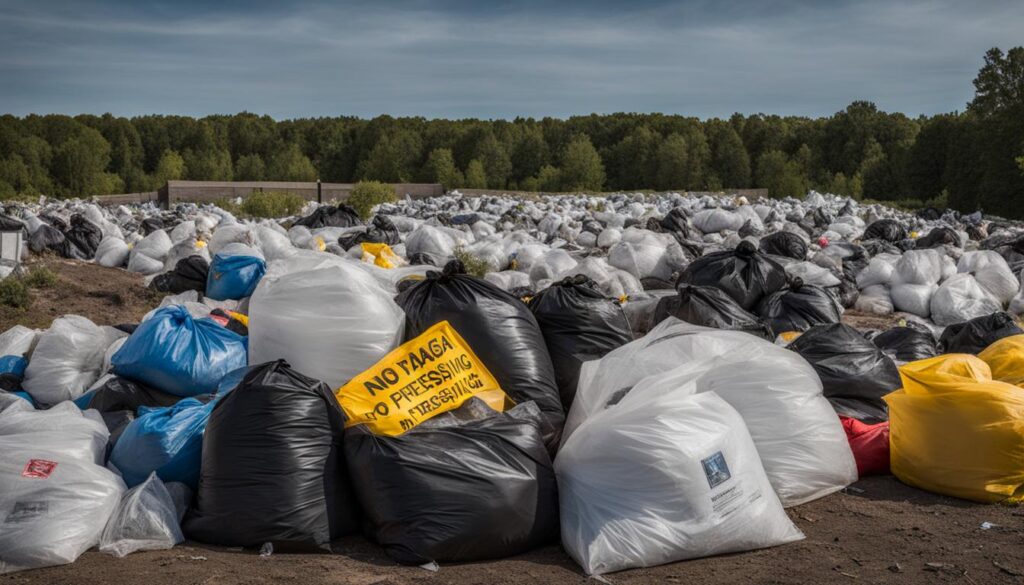
Penalties for Illegal Dumping and Unauthorized Trash Disposal
In Minnesota, strict regulations are in place to govern trash disposal and garbage management. Engaging in illegal dumping, which involves disposing of solid waste at unauthorized locations, is considered a gross misdemeanor. This offense carries severe penalties to discourage individuals from violating trash disposal regulations and protect the environment.
Individuals found guilty of illegal dumping can face fines of up to $15,000 and a maximum of one year in jail. These penalties serve as a deterrent, reinforcing the importance of proper waste management practices and responsible garbage disposal.
Furthermore, it is crucial to adhere to specific regulations when discarding trash. Placing your trash on private property without the owner’s permission is unlawful and can result in legal consequences. Similarly, disposing of waste in dumpsters or public trash bins without authorization is prohibited under garbage disposal laws. By respecting these regulations, we ensure a clean and safe environment for everyone.
To summarize:
Illegal dumping in Minnesota is a gross misdemeanor punishable by fines up to $15,000 and a maximum of one year in jail. It is also illegal to put your trash on private property without permission or dispose of it in unauthorized dumpsters or public trash bins.
Sample Table – Trash Disposal Offenses and Penalties:
| Offense | Penalty |
|---|---|
| Illegal Dumping | Fines up to $15,000 and/or up to 1 year in jail |
| Placing Trash on Private Property without Permission | Legal consequences determined by property owner |
| Unauthorized Disposal in Dumpsters or Public Trash Bins | Possible fines and penalties as determined by local regulations |
By adhering to trash disposal regulations and garbage disposal laws, we contribute to the preservation of our environment and the overall well-being of our community. Responsible waste management is essential for a clean and sustainable future.
Conclusion
In Minnesota, individuals do not have a reasonable expectation of privacy when it comes to their trash. The Minnesota Supreme Court has ruled that it is not illegal for someone to go through your trash once it has been placed at the curb for collection. This means that law enforcement and other parties have the right to search through your trash without a warrant.
However, it is essential to familiarize yourself with the trash disposal regulations to avoid any penalties. Engaging in illegal dumping, which involves disposing of solid waste without the necessary permits, is considered a gross misdemeanor and can result in fines of up to $15,000 and a year in jail. Additionally, it is unlawful to put your trash on private property without permission or dispose of it in dumpsters or public trash bins.
To protect the environment and maintain cleanliness, it is crucial to dispose of trash responsibly. Following waste management guidelines and properly disposing of trash can help prevent legal consequences and ensure compliance with trash laws in Minnesota. By understanding the regulations and being mindful of waste disposal practices, we can contribute to a cleaner and more sustainable future.
Source Links
- https://newscut.mprnews.org/2015/03/no-privacy-in-your-trash-minnesota-supreme-court-rules/index.html
- https://b105country.com/minnesota-illegal-dumping-rules/
- https://www.keyserdefense.com/can-police-search-your-trash-without-a-warrant/

Subscribe to Our Newsletter

